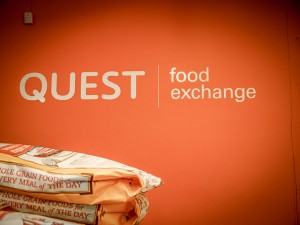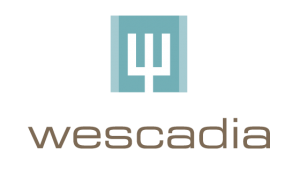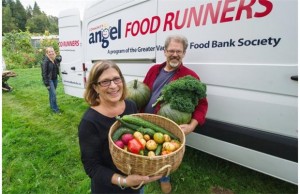Towards the end of last week, our group was beginning to fear the possibility of not encountering interest among the stakeholders we planned to reach. However, we were pleasantly surprised to find that the stakeholders we contacted thus far showed strong interest towards the project. Therefore, we can infer that the current management of food waste is not solely affected by a lack of interest, but by the current need for the creation/expansion of such projects.
Weekly Objectives:
Our objective for this week was to get in touch with our stakeholders, including the hotels and catering companies of interest and food donation establishments (Quest and Directions). Santiago emailed the Angel Food Runners Program and Marriott, Margot emailed Quest and Directions, Shannon emailed Wescadia Catering, Joanna emailed Fable Kitchen (a restaurant involved with Ocean Wise and MealShare), and Roy emailed the Vancouver Convention Centre.
Weekly Achievements:
We heard back by email from our stakeholders, including 2 donation programs, 1 hotel and 1 catering company, all who agreed on participating in an interview (either by phone or in person). Joanna and Roy are still awaiting a response from the stakeholders they emailed, however, we are very excited to interview our partners who responded, as they are quite interested in our project and food waste management.
What was the response of others?
Our stakeholders responded to our emails with interest and willingness to help. For example, the operations assistant of Directions Youth Centre said he was passionate about the Land and Food Systems faculty and proceeded to put us in contact with the head chef, who is most knowledgeable of their meal program. The catering company we contacted, Wescadia, responded with a confirmation that they would participate in an interview with their executive chef and is asking for the next steps. Finally, Angel Food Runners responded saying that they welcome any questions we have.
So what does this imply?
This enthusiastic response from our stakeholders tells us that our project has potential to gain interest and expand, as support from our multiple stakeholders is the most important building block of our project’s success. This also means that we can continue with gaining knowledge and collecting research through interviews, in order to keep building on our ideas.
Now what broader issues need to be considered if this action is to be successful?
Now we need to consider what exact questions we will ask each of the stakeholders, tailoring the questions to the different experiences of the stakeholders. We need to do this in order to make sure we get the most useful information possible, as our entire base of our project is build on this research coming from the interviews. After the interviews we need to compile all the information collected and analyze it, coming up with a program strategy that makes most sense with the time frame and resources we have.
Upcoming Weekly Objectives:
After hearing back from the stakeholders, our next goal is to set up and conduct interviews in order to acquire information regarding their stance on food waste management and involvement in our project. In the case of the Angel Food Runners, our main goal is to determine their current status on food donations, their possibilities of expanding their food runners program, and what their major setback would be if they began to receive more donations. In addition to the Angel Food Runners, we expect to gather information from Wescadia Catering regarding their opinion on food waste management and how their company deals with food waste. For Directions, we are interested in hearing how their program is running, and any difficulties they have and if they could take in more food if it was available. On a final note, we will try to improve the structure and approach of our project by utilizing strategies already employed by donation based establishments such as Quest and Directions. The podcast “Latin Liver” talks about the importance of being flexible when trying a certain structure that worked for someone else, but may need to be adapted to work in your conditions. In the podcast, Chef Dan visits Eduardo in order to learn more about his current production of foie gras without the use of force feeding. Chef Dan goes to Eduardo’s farm in Spain in order to learn about his method, and then aimed to replicate the approach in his hometown. This is similar to our approach to our project, where we are interviewing similar programs, Quest and Directions, to learn about their approach to the idea, which will hopefully allow us to successfully expand the program. However, Dan did come to realize, when he tried to replicate the method, that the conditions were different and the possibility of replicating Eduardo’s approach not only depended on the structure of the farm but also on individual context. This idea of different conditions will become relatable to our interview with Quest, as we plan to ask them about the structure and approach of their food exchange program in hopes to replicate their structure. However, we have to keep in mind that we cannot fully follow Quest’s strategies because food regulations regarding donations of perishable foods will differ. We will likely run into other issues, such as limits to expansion due to not having enough refrigerated trucks, or restaurants not being able to participate due to not being able to follow the perishable food donation regulations. These are issues we will have to work around, forcing us to think outside of the box of what has already been done.
Another objective we hope to complete next week is to interview potential consumers of the food service companies to know about their opinions on supporting a company that donates to the food bank.
Upcoming Week Strategies:
In order to obtain valuable information from our stakeholders, we will first prepare the consent form with our project objectives and then prepare specific questions we are going to ask each stakeholder. Each question we create will be different for each stakeholder, as each stakeholder has different ways of operation and objectives. For example, we will ask companies who are not involved with the food bank if they experience any food waste issues, while we will ask companies who are affiliated with the food bank how much food is saved since they began donating their food. We will then set up interview times, either for in-person interviews or over-the-phone, and conduct these interviews accordingly.
Images:
Quest image from: http://vitalafoods.com/farm-kitchen/cooking-on-a-budget-with-quest/
Wescadia image from: http://alumnicentre.ubc.ca/rental/services/catering/
Angel Food Runners image from: http://blogs.vancouversun.com/2013/09/23/there-is-no-such-thing-as-food-waste/


